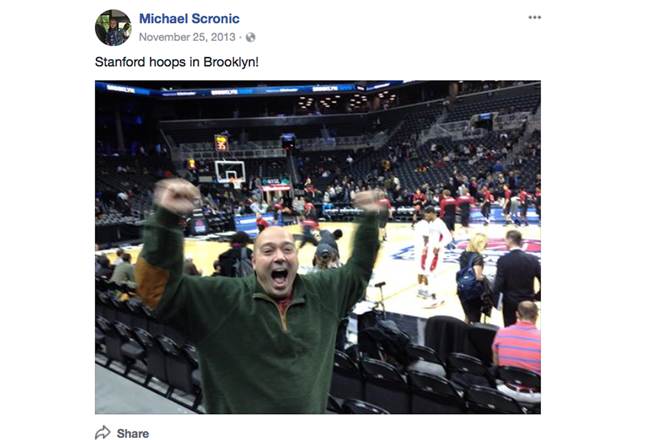Feds accuse Pound Ridge man of $20 million securities fraud
Investors poured nearly $20 million into the Scronic Macro Fund over the past seven years, but when some of them tried to cash out recently, investment adviser Michael Scronic of Pound Ridge stalled them. The fund had less than $6,000 in assets.
In reality, the Securities and Exchange Commission said, there was no fund. Scronic Macro Fund was a “fictitious hedge fund” and Scronic was not a registered investment adviser.

The money allegedly disappeared in bad trades and on personal expenses of more than $500,000 a year.
On Thursday, the SEC sued Scronic, 46, of Pound Ridge, for securities fraud. He was also arrested and the U.S. Attorney”™s Office charged him criminally with wire fraud and securities fraud.
Scronic did not respond to a voicemail message requesting his side of the story.
He does have an investment background, having worked on an equities trading desk for Morgan Stanley, from 1998 to 2005, and receiving a master”™s degree from the University of Chicago business school.
But the federal agencies said he ran a bogus fund out of his home in Pound Ridge, persuading 45 people, including friends and many from his community, to invest as little as $23,000 and as much as $2.4 million.
Scronic put the money in a personal brokerage account and invested primarily in risky options on equities, indexes and futures contracts.
The deal was that he would charge a 1 percent fee on assets under management plus 20 percent of profits. Investors would get quarterly reports and could redeem their funds in three business days.
The reports painted a rosy picture. He claimed positive returns in all but one of 22 quarters, from April 2010 to June 2017.
He occasionally reported his views of economic trends, using complicated vocabulary, the SEC said, “to demonstrate his mastery of the markets and investment acumen.”
In fact, the SEC said, he was sustaining “dramatic and consistent losses.”
He had piled up $15.8 million in losses on $20.8 million in deposits.
Money was withdrawn from the brokerage account and put into his personal bank accounts, according to the U.S. Attorney”™s Office, to support a lavish lifestyle.
About $2.9 million was spent on personal items such as $12,275 a month in rent for a 6,817-square-foot, 4-bedroom, 6.5 bathroom house on 9.95 acres in Pound Ridge.
He made mortgage payments for a vacation home at Stratton Mountain in Vermont, according to an FBI affidavit, fees for multiple beach and country clubs, and credit card charges that averaged $15,000 a month.
When people asked to redeem their investments, the government said, Scronic paid them with money from new investors.
But as trading losses mounted, he deflected investors.
An unidentified person from Westchester, referred to as Investor A in government documents, invested $100,000 with Scronic in December 2015.
The investor had made it clear that liquidity was important because he was starting a new business. Scronic allegedly responded that redemptions are done within two days.
“So if you do need to withdraw for your business needs it will be quick and painless.”
The reports showed the investment growing from 4 to 7 percent quarterly.
In June, Scronic pressured Investor A to put more into the fund, to take advantage of an upcoming market opportunity. The investor gave another $100,000.
On the same day, the criminal complaint states, Scronic spent about $11,000 at Cartier.
The July quarterly report showed Investor A”™s stake valued at $223,283. Actually, the SEC says, it was worth $27,376.
Investor A, believing he had nearly a quarter of a million dollars, tried to redeem his shares.
Scronic made a variety of excuses. He could not process the withdrawal for at least two weeks. He ignored emails. Then he said he had changed his account from Yahoo to Gmail. Finally, the SEC alleged he said he could only make redemptions on a quarterly basis.
The SEC is asking the court to make Scronic “disgorge all ill-gotten gains” and to pay civil penalties.
The criminal charges each carry a maximum prison sentence of 20 years. He was released from custody on a $500,000 personal recognizance bond that was co-signed by his wife.